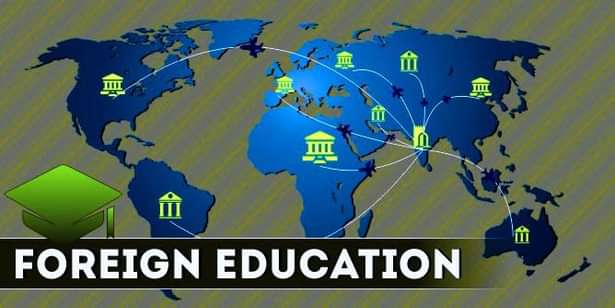
In India, education is provided by the public or private sector with control and funding coming from three levels: central, state, and local bodies. Indian Constitution provides free and compulsory education right to children between the ages of 6 and 14. India's improved education system is often cited as one of the main contributors to its economic development. Much of the progress, especially in higher education and scientific research, has been credited to various public institutions. And perhaps, that is why, enrolment in higher education has increased steadily over the past decade.
But if we look at the bigger picture and dig into the statistics of education in India vs education aborad, we will find a marked difference amongst the two. Some of them include:
Difference in Approach:
The Indian education system does not enable to do any innovative work due its old structure. They bind students by making it restricted in a specific area. As a result, Indians are quite knowledgeable about degree courses like Engineering, Medical etc, where the emphasis is more on theoretical courses rather useful training. But in the education system abroad, students are privy to various education methods as their course structure is designed to follow theoretical courses in one term, followed by useful training which they have actually studied in their last term. This technique gives them direct exposure to market.
Following your Passion:
In India, students choice in selection of courses is directly proportional to the salary package, regardless of their interest. However abroad, students put their interest in a subject first.
Old Method of Teaching:
The Indian education system is still following old techniques of teaching. Education abroad is more flexible and open to modifications and provides assistance to students to find out how one can invest time in creating newer innovations.
Access to good Institutes:
The only metrics Indians worry about to get admissions in reputed institutes like IIM's and IIT's are good grades. And they are not wrong. The Indian education system is so pivoted towards marks that the cut out creativity, skill and variety from the skill set of the student. However abroad, practical knowledge and skills are equally important to get admissions as much as marks and grades are.
Source: Mithlesh Kumar, City Journalist - Kota, CollegeDekho
















Similar Articles
SAMS Odisha +2 Admissions 2025: Application Form, Selection Process, Merit List, Top Colleges
How to Score 90 Percent in Class 12? - Preparation Tips to Score 90% in 12th
How to Score 90 Percent in Class 10? - Subject-Wise Preparation Tips to Score 90%
Police Ranks in India: Check Rank List PDF, Police Posts with Badges, Stars & Salary
Top 10 North Campus Colleges in Delhi University (DU): NIRF Ranking & Popular Courses
REET 2025: Notification, Application Form, Exam Date and More